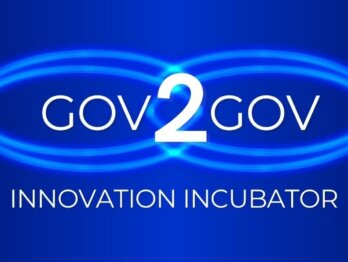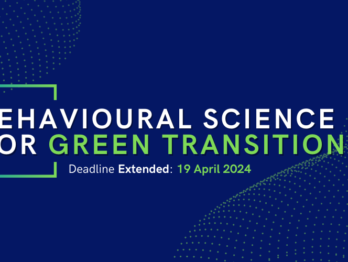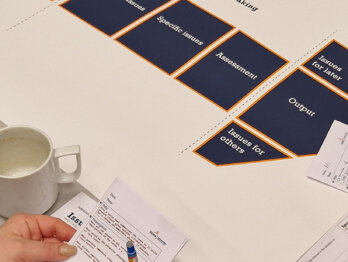Gov2Gov Challenge 2 | France | Engagement in Common Data Spaces

This team and corresponding challenge area are participating the OECD Gov2Gov Innovation Incubator. For information on the programme, please click here.
How can we engage the general public, particularly actors involved in public policies, in common data spaces?
🇫🇷 The Green Data for Health (GD4H) initiative, led by the Innovation Lab of the French Ministry of Ecological Transition, is built around an online platform where different environmental data sources for health – environment are referenced, and on which different tools (including legal ones) are proposed to foster the mobilisation and use of data to better understand the impact of environmental factors on health.
Released to the general public in early 2023, the online platform of the GD4H has already garnered nearly 32,000 consultations. It is rooted within a diverse community of 450 active members, involving ministries, public agencies, research organisations, associations, local entities, and stakeholders engaged in data-driven innovation.
The GD4H has been developed to help experts and researchers locate, analyse, and combine environmental and health data more effectively. This initiative fosters the creation of new data-driven tools and knowledge through its online platform, which offers features like a data catalogue and legal tools, used among others through the different associated initiatives launched as part of the service offering.
In fact, the GD4H fosters tools and knowledge development through call for projects and open innovation based on the data referenced in its catalogue. For instance, its first call for projects, led with the Health Data Hub, allowed to support four research teams from ten organisations for health and environment to foster the mobilisation of data on four research projects in the domain. A second joint call for projects has been launched in 2024. A data challenge led in 2023 resulted in 15 open-source tools, the release of two new datasets, and of three data papers, thanks to the engagement of 150 health-environment and tech sector specialists.
New functionalities have recently been added to the data catalogue to enhance its contributive aspect. One of these is a feature that allows sharing data-driven resources or data uses associated with the input data.
Challenge description
The OECD and the Innovation Lab of the French Ministry of Ecological Transition are calling on government solution providers to join the incubator programme and support them in answering the question of how to engage the general public, particularly actors involved in public policies, in common data spaces.
The current challenge is to make the platform better at collecting and handling data uses obtained thanks to the source data referenced in the catalogue. The final objective is to present valuable data-driven insights and tools for research and policymaking, and to raise awareness of the usefulness of data among public actors and more broadly, among all citizens. The challenge to provide guidelines to accurately use and interpret data should be taken into consideration while following this main objective.
The challenge aims to bridge the gap between the perceived abstract nature of data and the tangible breakthroughs that can be achieved through its use.
Enhancing the platform refers to:
- Growing the platform’s contributive aspects: The goal is to increase the amount and quality of data sources referenced, and of data-driven uses and tools produced thanks to this source data.
- Users’ feedback: In addition to the booster of data contributions, the goal is also to motivate users to provide more feedback, and to foster the GD4H’s role in strengthening the synergies between actors in the health and environment domain.
- Better linking the data sources referenced on the catalogue, the tools and levers allowing to facilitate its mobilisation, and the resulting data-driven outputs and knowledge generated.
- Generating data-driven insights for research and policymaking: By improving data contributions and platform features, the platform aims to produce valuable insights that can be used for research purposes or to inform policymaking decisions.
Thus, the two interlinked challenges to be addressed in the incubator programme are:
How can we engage the general public, and in particular actors involved in public policies, in the use of common data spaces?
The challenge proposes to focus on public actors who are less familiar with using data. The aim is to increase their awareness of data’s added value and to encourage their use of data and of the resulting data-driven knowledge and tools. The challenge also aims to explore the role of behavioural science in enhancing contributions and participation in the common data space. The crucial challenge of allowing a good use and interpretation of the shared data-driven knowledge should be kept into account as a general guideline.
How can the design of data spaces boost contributions and participation in the common data space and how can it increase the awareness of data’s added value and the adoption of a data-driven and evidence-based mindset?
People who own and use data don’t consider sharing it by default. They might not see the benefits or need more incentives to do it. This is even more true when the perceived benefits are low as compared to the time costs involved.
Another challenge is the quality and use of data. Sometimes, data owners are reluctant to share data because it has quality issues or requires special skills to manage. Likewise, those who use data might only want to share how they’ve reused it if they have finished a project that relies on it. Improved transparency, better documentation, and increased opportunities for interaction between actors could help alleviate these limitations.
Objectives & impact
The objective is to make the catalogue’s collaborative features easy to use and appealing. The goal is to increase the number of data reuses and the production and mobilisation of new tools by a non-expert group. The goal is also to make the value of data for everyone more visible and tangible.
Meet the team: Challenge owners
Ecolab is the innovation laboratory for the ecological transition of the Commissariat Général du Développement Durable (CGDD), a cross-cutting direction of the Ministry of Ecological Transition. The CGDD provides information and analysis to inform the Government’s and Ministry’s actions regarding the ecological transition. Within this structure, Ecolab is responsible for harnessing data and artificial intelligence, as well as leading the greentech ecosystem in support of the ecological and energy transitions.

Would you like to team up?
Take a look at our participation criteria, FAQs, and become a solution provider. Deadline: 7 June 2024 | extended: 20 June 2024
- Learn more about Challenge 1 | Brazil: How can we promote broader and more equitable digital participation?
- Learn more about Challenge 3 | Italy: How can we establish a collaborative, cross-departmental and inclusive culture for AI project management?
- Learn more about Challenge 4 | Spain: How can we improve accessibility to public services for people in vulnerable situations and at risk of exclusion?
This project and blog are funded by the European Union. Its contents are the sole responsibility of the OECD and do not necessarily reflect the views of the European Union.













